Story highlights
Underdog triumphs are the stuff of sporting history
CNN presents ten astounding sporting upsets
Upsets or shock wins in any sport are what put bums on seats and drive television audiences, whether it’s a shock K.O. in the ring, or a last-minute goal.
CNN looks back at some of sport’s most memorable surprises.
Leicester City
When bookmakers are prepared to offer you odds of 5,000-1, they’re pretty certain they won’t be paying out, comfortable in the knowledge your team has a snowball’s chance in hell of winning that trophy or title. But sometimes fairytales do happen – seismic sporting events that defy logic. Enter Leicester City.
Only a year ago, this team of made up of footballing journeymen and youngsters with potential were fighting relegation at the foot of England’s Premier League. Once survival was assured they appointed Claudio Ranieri, a footballing nomad with a fairly checkered record of success, as their new manager.
Where once he was maligned for an almost obsessive tendency to alter his team’s tactics and formation, earning him the moniker “The Tinkerman,” this season he has demonstrated a Zen-like calmness – his tactics were measured and his man-management flawless.
Football’s greatest Cinderella story?
The likeable Italian had identified survival in a league dominated by multi-billion-dollar behemoths like Manchester United and Arsenal as his club’s priority.
But then they started to win games on a regular basis – including famous victories over free-spending Manchester City and defending champions Chelsea. When Leicester climbed to the league’s summit, no-one believed they would stay there. But they did. Ranieri had fashioned a team with an astonishing spirit and a buccaneering style that would not give up.
Nottingham Forest
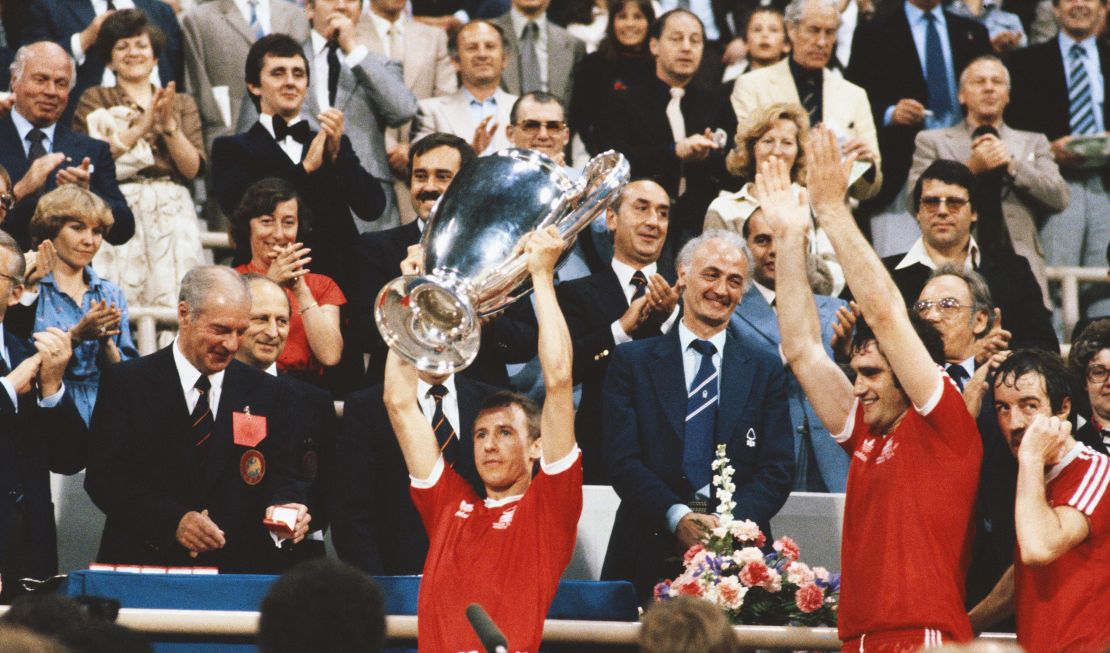
Just 30 miles north of Leicester is another town with an equally remarkable footballing story. When the inimitable Brian Clough arrived at Nottingham Forest’s City Ground stadium in the mid-1970s they were languishing in England’s second-tier, perennial underachievers.
They secured promotion to England’s top league in 1977, before going on to actually win the title in 1978. Clough was universally lauded for doing a remarkable job.
But this was only the beginning.
Forest had qualified for the European Cup, the continent’s biggest club competition now known as the Champions League. Their European adventure got off to a flying start with a win over holders Liverpool. This was followed by wins over AEK Athens, Grasshoppers Zurich and FC Cologne as they marched to the final. A solitary Trevor Francis goal was enough to defeat Malmo of Sweden in Munich and take one of football’s most coveted trophies back to a town associated with Robin Hood more than the beautiful game.
What makes this story truly remarkable is that this unfashionable club defended their European title the following season. They defeated European heavyweights Ajax in the semi-final, before taking on Hamburg in the final at Madrid’s Santiago Bernabeu stadium. Despite being the defending champions, Forest were rated as underdogs going into the match against the Germans, who fielded England star Kevin Keegan in their line-up. But the tactical nous of Clough allied to a strike from John Robertson – his 19th of the season – was enough to see Forest across the line.
Greece
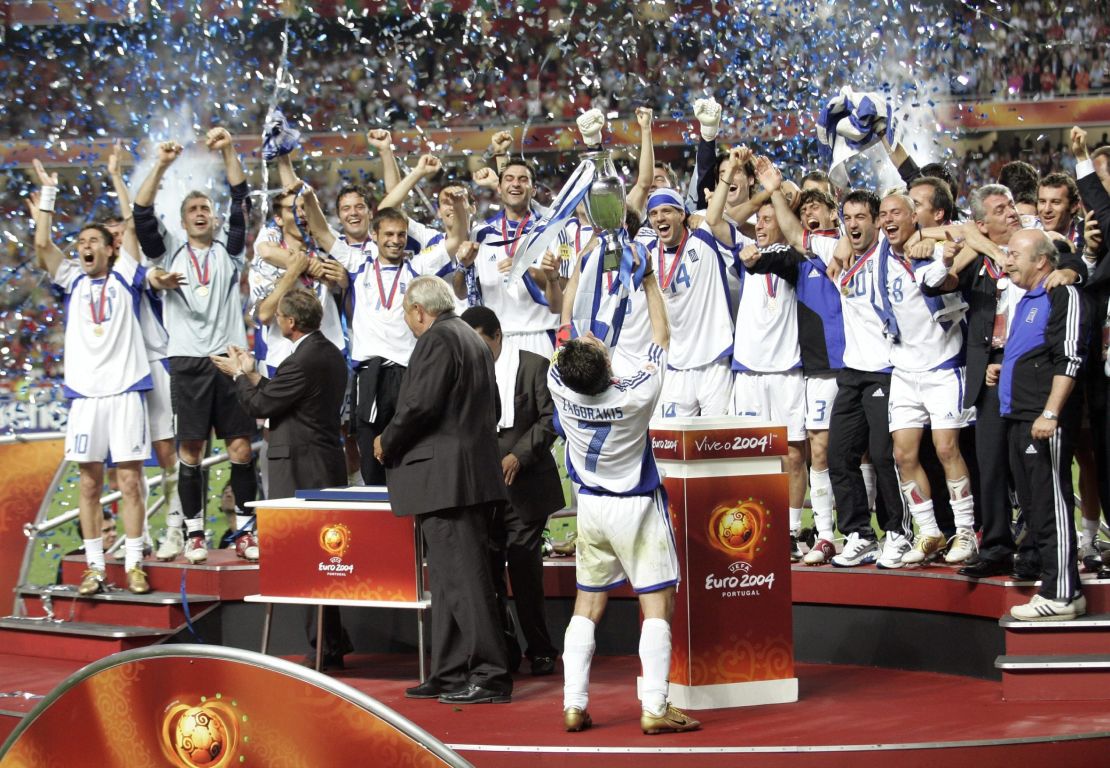
Arguably one of the biggest shocks in international football came in 2004 when Portugal hosted the European Championships.
Most commentators pointed to the hosts – who featured Cristiano Ronaldo and Luis Figo in their side – and a Wayne Rooney and David Beckham-inspired England as probable winners. But the tournament belonged to unfancied Greece, ranked 40th best team in the world at the time, who defeated the star-studded Portuguese not once but twice – 2-1 in their opening group game and 1-0 in the final – and beat defending champions, France.
While they lacked the individual brilliance of many of the other nations involved, their German coach Otto Rehhagel created a tough unit able to grab goals from set pieces and counterattacks, and then defend narrow leads – they won their quarter final, semi final and final by one goal.
The Greeks, who had never previously won a match at a World Cup or European Championships finals, had eclipsed Denmark’s memorable win at Euro ’92.
Boris Becker
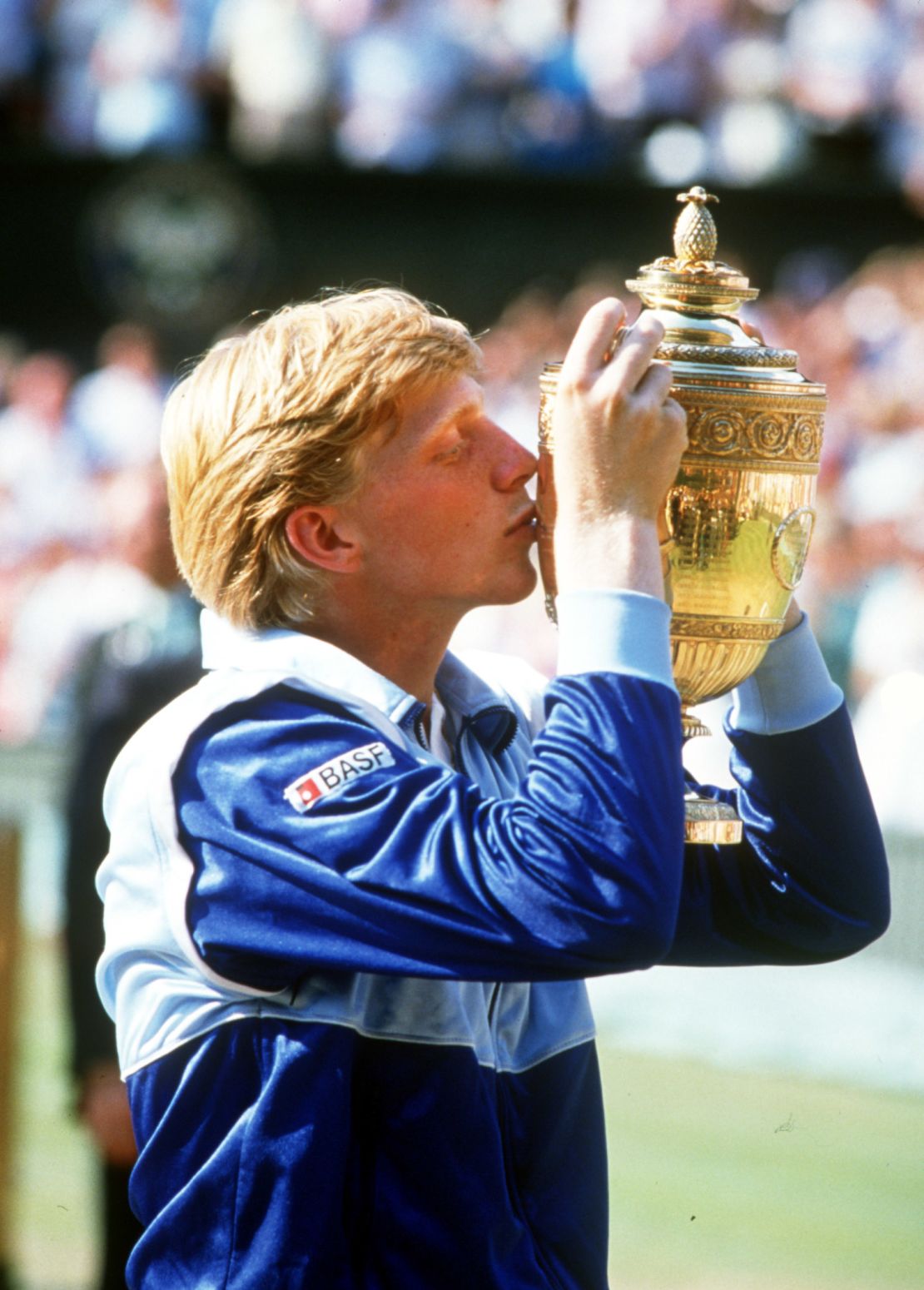
A German teenager called Boris Becker stunned the tennis world in 1985 when he became the youngest ever male winner at Wimbledon, beating Kevin Curren in four sets. In doing so the 17-year old also became the first German and the first unseeded player to win the sport’s most coveted singles title.
Throughout the tournament, the young German wowed the crowd with his aggression, a huge serve, and his seemingly limitless reserves of energy – he frequently forced his 6’3” frame across court diving for volleys.
While largely unknown to the public going into the 1985 championship, Becker’s win at the Queen’s Club – regarded as a Wimbledon warm-up tournament – would have made opponents in the locker-room take notice.
Becker’s famous win was no fluke because he returned to defend his title at the All England Club the following year, beating Czech great Ivan Lendl in straight sets in the final. He sealed his legendary status on the grass courts of London SW19 in 1989 when he gained revenge over Stefan Edberg in the final, winning 6-0, 7-6, 6-4. The Swede had beaten Becker in the final the year before.
Buster Douglas
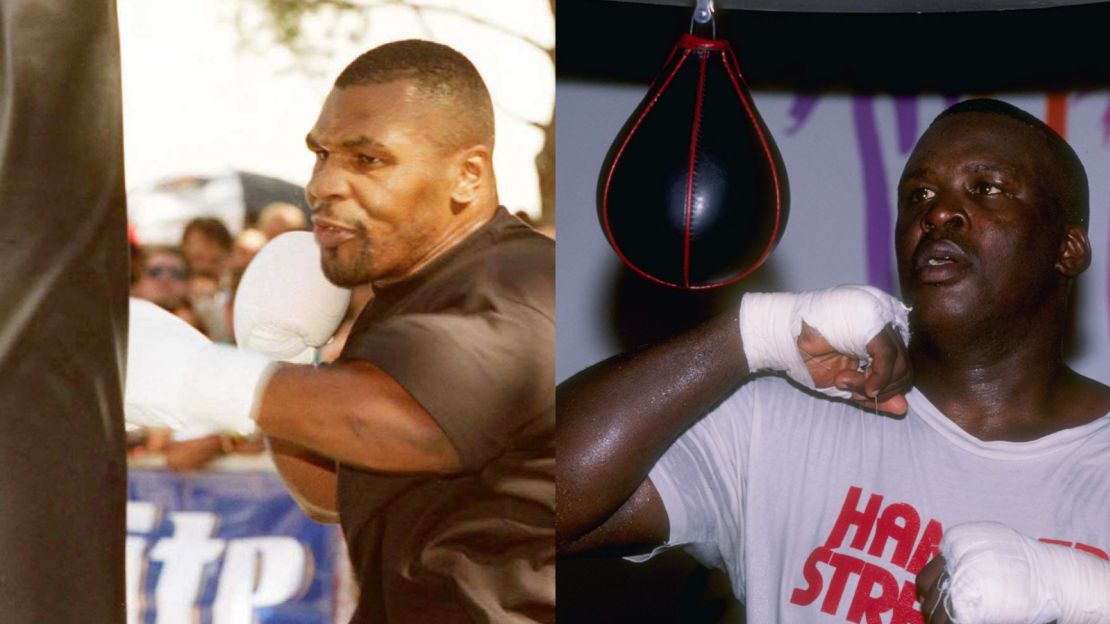
The odds were 42-1 against James “Buster” Douglas causing an upset against the seemingly unbeatable Mike Tyson when the two boxers met in Tokyo in 1990.
On the face of it the bookmakers had every reason to feel confident about “Iron Mike” Tyson. He was undisputed heavyweight champion of the world with 37 wins and no defeats, and had knocked out his previous opponent, Carl Williams, inside the first round. He was a feared destroyer in the ring. By contrast, Douglas was viewed as something of a boxing journeyman, a record showing 29 wins and four defeats.
But going into the Japanese fight, reports in the media suggested Tyson hadn’t properly prepared for what should have been a routine fight. Tyson later admitted he didn’t consider Douglas “much of a challenge.”
The champion was also experiencing a tumultuous life outside the ring: he liked to party hard and his marriage to actress Robin Givens had disintegrated amid claims of violence and abuse. He later admitted in his 2013 autobiography that “he didn’t even want to be in the ring” that night.
What should have been a quick fight turned into a nightmare for Tyson. His opponent was motivated and took his best shots. When Tyson knocked Douglas to the canvas in the 8th round, the experience seemed to rally Douglas to even greater efforts. This was a turning point in the match – the Tyson camp claimed the referee’s count for Douglas had been too slow.
But by the 10th round, Tyson’s life collapsed around him. Some 35 seconds after the re-start, Douglas floored the champion with an uppercut and a flurry of punches. Tyson stayed down and was counted out.
John Daly
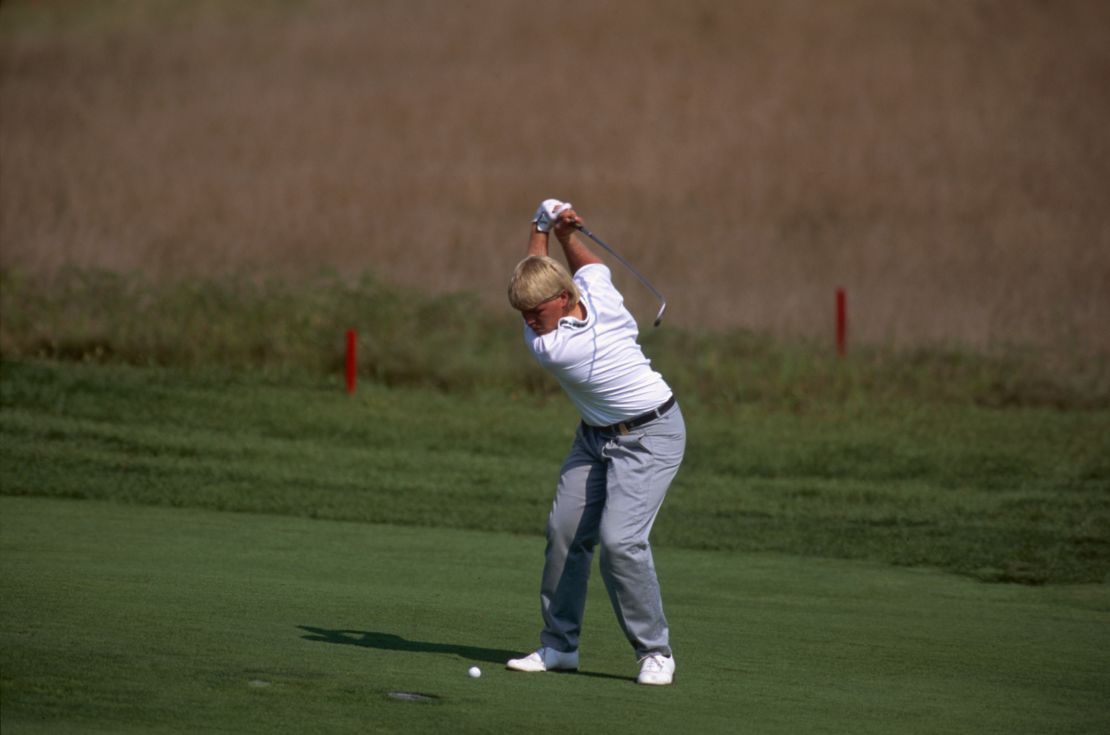
John “Wild Thing” Daly burst on to the golfing scene in 1991 with a three-stroke victory in the 73rd PGA Championship at the Crooked Stick Gold Club in Carmel, Indiana – one of golf’s four majors.
The most remarkable fact about Daly’s story was the fact that he was only playing in the tournament after a series of withdrawals by other players – he started as ninth alternate. His form going into the tournament was also fairly uninspiring, having missed 11 cuts in 23 other competitions.
After reportedly driving all night to get to the course as first standby should Nick Price drop out, Daly was given the news he would actually play just 24 hours before the tournament began. He had never played Crooked Stick before.
And so the legend was born. Daly smashed drives and irons further and straighter than everyone else – his rivals recalled Daly hitting wedges when they would need two- or three-irons. He played without fear.
Boston Red Sox, 2004 World Series
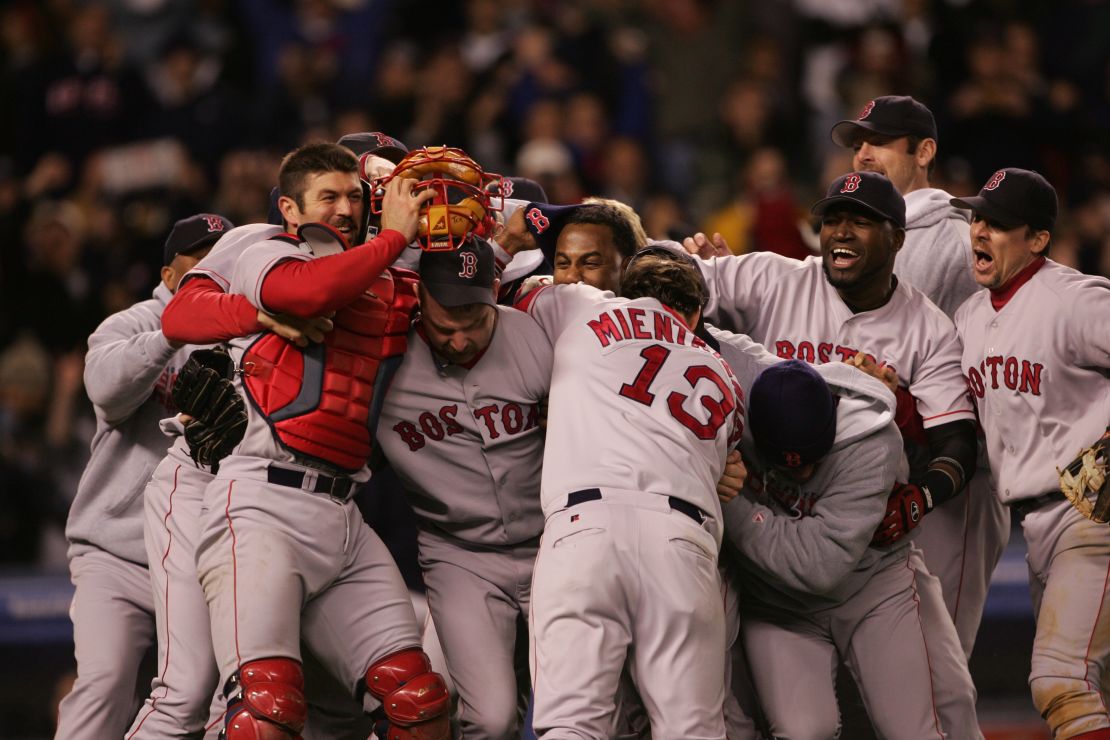
In the 2004 American League Championship Series (ALCS), the Boston Red Sox faced the much-vaunted New York Yankees, with the winner advancing to the World Series – something Boston had not won since 1918. The Yankees had won 26.
When the Yankees went 3-0 up in the series, almost everyone starting looking forward to the main event. Everyone except the Red Sox players, it seemed.
At the start of the 9th inning of game four, the game was tied and Boston went on to win the game in extra innings. Was this be a revival or a defiant last hurrah? It proved to be the former, with the Red Sox going on to win the next three games – the first time a team has fought back from 3-0 down.
The fairytale continued into the World Series, with the Red Sox defeating the National League Champions, the St. Louis Cardinals.
U.S. 1980 Olympic hockey team
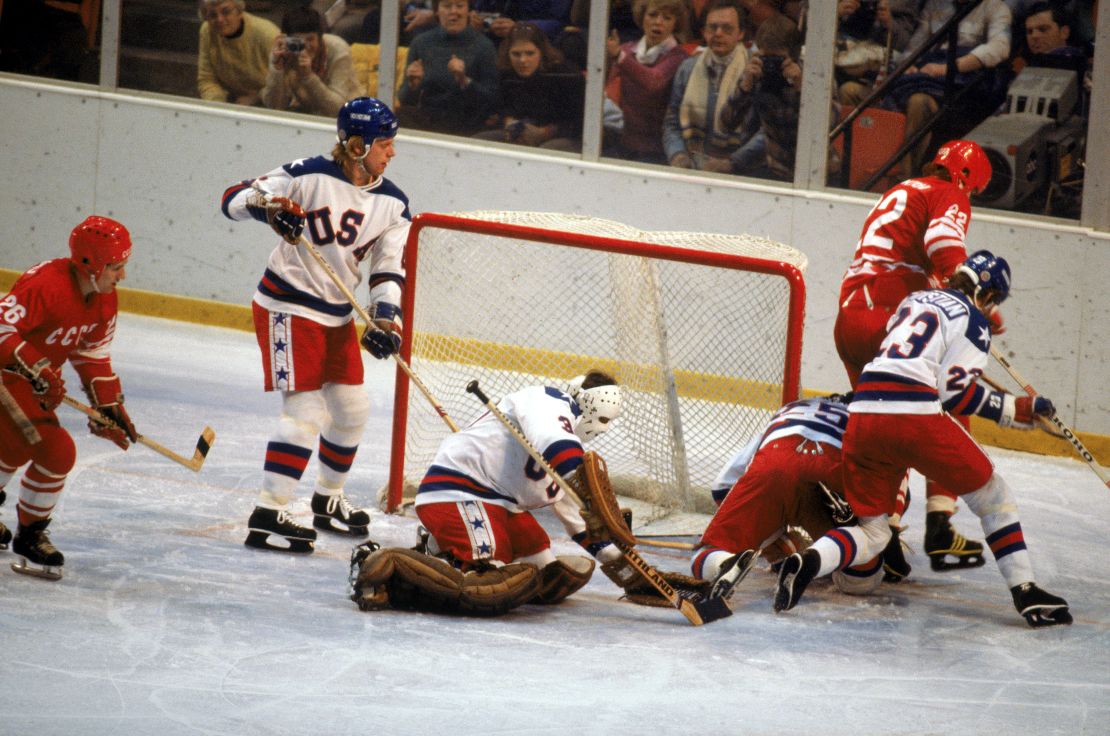
In 1980, at the height of the Cold War, the United States faced off against the Soviet Union at the Winter Olympics in Lake Placid. Relations between Moscow and Washington were particularly strained over the Soviet invasion of Afghanistan. The bulk of the American team was made up of college players, while their rivals were huge favorites, having won gold at six of the previous seven games. True David and Goliath stuff.
Despite the odds, the U.S. team stunned the Soviets, defeating them 4-3 in a match that became known to American fans as the “Miracle on Ice.” It was the first Olympic defeat for the USSR since 1968.
A 4-2 win over Finland in their final game gave Team USA only their second Olympic gold.
Japan beats South Africa
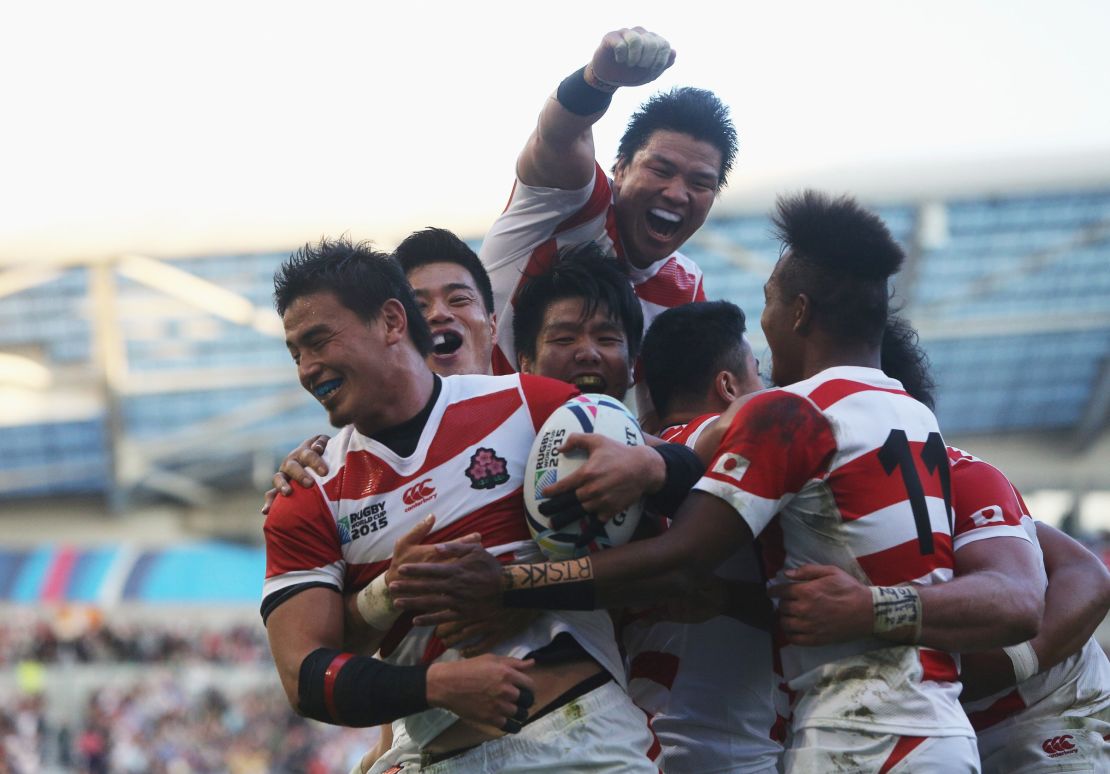
Upsets at the highest level of Rugby Union don’t come much bigger than Japan’s dramatic defeat of two-time winner South Africa at the 2015 World Cup in England.
Karne Hesketh crossed out wide in the fourth minute of time added on to clinch Japan’s second victory in the tournament’s history, and their first since beating fellow minnow Zimbabwe in 1991.
The men behind Japan’s shock success
The Springboks were expected to have few problems against a team ranked 13th in the world as they began their bid to become the first nation to win the title on three occasions. But the 1995 and 2007 champions could not overcome the tenacious “Brave Blossoms,” despite scoring four tries to three. It was the most points the Boks had ever conceded at the tournament.
Ronda Rousey’s shock defeat

Ronda Rousey’s defeat against Holly Holm in November 2015 is widely considered to be the biggest upset in the history of the Ultimate Fighting Championship (UFC).
The previously undefeated woman’s bantamweight champion was floored by a kick to her head from Holm in the second round of their bout in Melbourne, Australia. She crashed to the canvas, seemingly knocked cold.
Rousey was the sport’s superstar and known for dealing with her opponents quickly and brutally. In August 2015, she knocked out Brazilian Bethe Correia in just 34 seconds, while she took only 14 seconds to dispatch rival Cat Zingano in February.
In an interview earlier this year with Ellen DeGeneres, Rousey admitted she’d briefly considered taking her own life in the wake of the defeat. “In that exact second, I’m like, ‘I’m nothing. What do I do anymore?” she said, wiping away tears.
“No one gives a s–t about me anymore without this.’”





